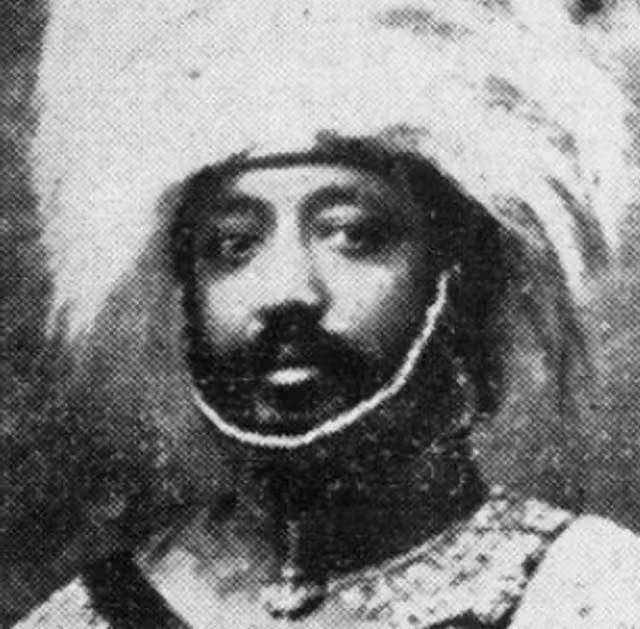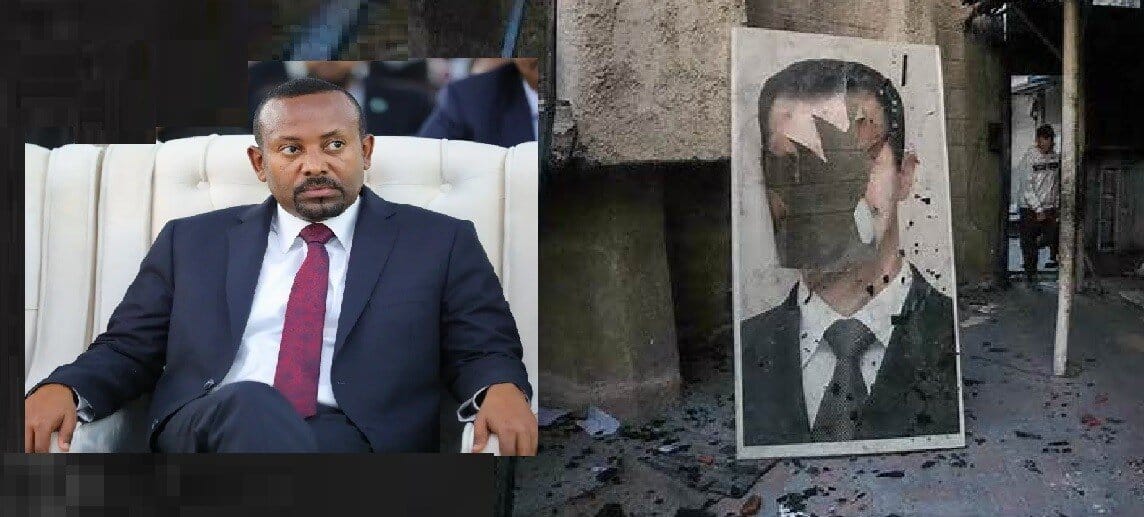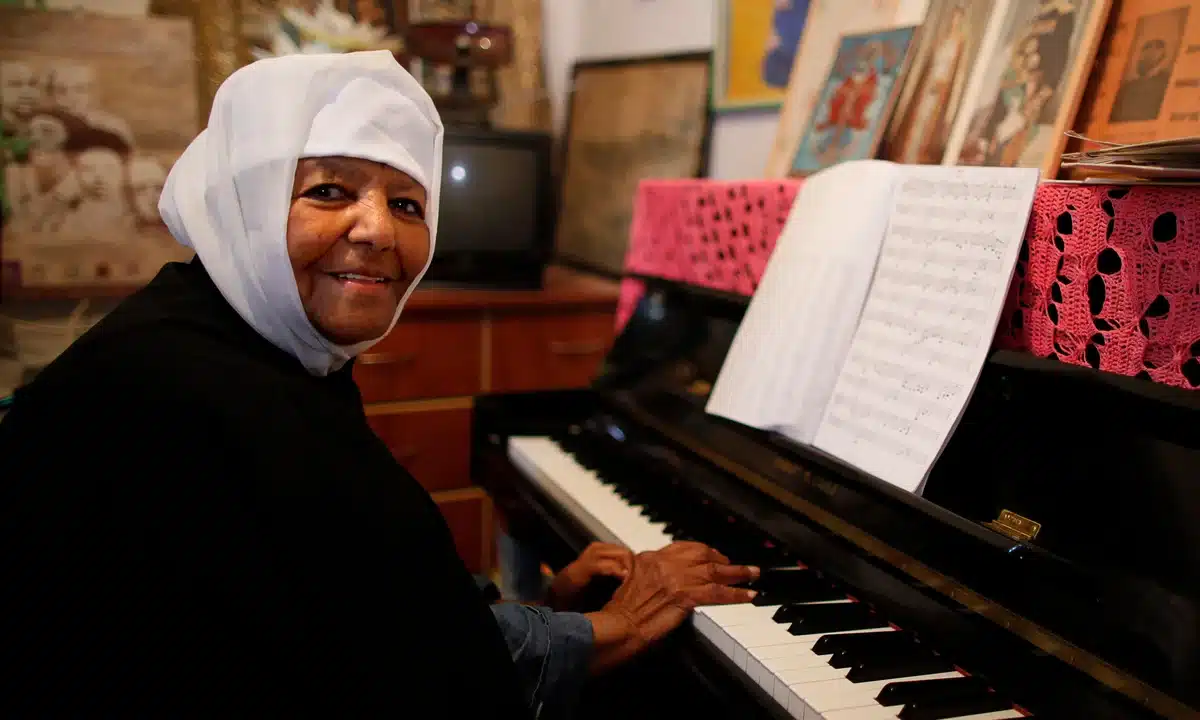Prof. Getachew Metaferia
The Nile Valley Politics: Historical Perspective and current reality
The Nile river, made up of the White Nile originating from Lake Victoria and the Blue Nile originating in Ethiopia, is one of the longest rivers in the world. Lately, despite its potential for regional integration and development, the river has been plagued with intense controversies. Historically, the Nile enabled and empowered great civilizations. It was romanticized throughout antiquity and tempted powers from near and far with conquest and discovery. The Ethiopian emperors (from 330 AD to 1959) used the Nile as an instrument of threat against the Egyptians when the latter delayed sending patriarchs (Abune) to head the Ethiopian Orthodox Church, or when Egypt’s Muslim rulers mistreated Christians in their realm. The Egyptians believed the river to be a gift to them from the gods for life sustenance and were inquisitive about it and its source. Eventually controlling the source of the Nile, directly or indirectly through proxies, remained the objective of Egypt. For Ethiopia, too, the Nile remained a political realism that occupied its attention and needed to be dealt with accordingly.
Since the water remained vital and controversial to the region, agreements on sharing the Nile were embarked between the stakeholders at different times. These compacts included the Anglo-Ethiopian Treaty (1902), the Anglo-Egyptian Treaty (between Egypt and Britain representing its colonies in the region) in 1929, and the 1959 Treaty that allocated water between Egypt and Sudan. Recently, in 2015, Ethiopia, Egypt, and Sudan signed a Declaration of Principle (also called the “Nile Agreement”) regarding the Great Ethiopian Renaissance Dam (GERD) that Ethiopia had begun to build to extricate itself, through hydroelectric power, out of its perpetual underdevelopment and abject poverty.
During the Cold War period Ethiopia and Egypt were close to the two rival superpowers – the US and the USSR – respectively, who were attracted and interested in the region. Major studies and mapping projects of the rivers in Ethiopia were conducted by the US Bureau of Reclamation at the request of the Ethiopian government in the late 1950s and early 1960s. The geographic survey of the Blue Nile, which is the genesis of the current GERD, can be traced to that period. Earlier a couple of surveys were conducted and an agreement to build a dam on Lake Tana, the source of the Blue Nile, with an American engineering firm, J.G. White Engineering Corporation of New York, failed when Italy started a war with Ethiopia in 1936. That agreement was sensitive to Britain, a colonial power in the downstream countries of Sudan and Egypt. Britain was not favorable to the relations between Ethiopia and the US as well.
In Egypt, the USSR built the largest man-made lake, the Aswan High Dam, in the 1960s to generate hydroelectricity and regulate the flooding that occasionally devastated the area. Unlike the Aswan Dam, however, the GERD has currently become controversial and attracted more attention as Ethiopia took bold actions to build the dam without any external financial support. Seeing the geopolitical and security implications, Egypt’s focus has remained on controlling the source of the Blue Nile which contributes 80% of the Nile’s water. Thus, weakening Ethiopia
and gradually controlling the Blue Nile directly or indirectly has been on the Egyptians’ agenda for a long time. This approach also goes back to Egypt’s goal of annexing Sudan or at least maintaining the previous Anglo-Egyptian Sudan type of agreement. That vision failed when Sudan declared its independence in 1956 even though some elites emphasized the Arab identity of the two nations and entertained the idea of an Egypt-Sudan unity. Thus, the Egyptian ambition of dominating and completely Arabizing the Nile Valley did not materialize, and the duality and tension of Arab-African identity remained a burning issue in the region. Such was the case in South Sudan whose efforts to gain independence (which it did in 1991) further challenged the Arabization imposed on Africans and is the root of conflicts in Darfur and the Nuba region.
Referring to the Egyptian expansionism and grand design to undermine Ethiopia, Egypt pursued the strategy of removing Ethiopia from the western littoral of the Red Sea and converting it to an “Arab Lake”. By doing so, Arab countries could remove a predominantly Christian Ethiopia from the region and have a stranglehold on Israel’s southern flank. Accordingly, Egypt and other Arab countries assisted and abetted an insurgency in Eritrea against Ethiopia by supporting the Muslim-dominated Eritrean Liberation Front (ELF). ELF, the precursor of Eritrean People’s Liberation Front (EPLF), launched a guerrilla war in 1961 to bring about the secession of Eritrea despite Eritrea’s historic, cultural, and economic ties with Ethiopia. Gamal Abdul Nassir’s vision in the 1950s was to promote a Pan-Arab and a Pan-Islam unity under Egypt’s sponsorship. Nassir had initiated the short-lived unity of Egypt with South Yemen, a distant land and without any geographic contiguity with Egypt. Ethiopians have long suspected the desire of Egypt and some Arab countries to tighten the noose around their neck. That remains a historical fact.
During such agonizing periods, Egypt remained the arch enemy of Ethiopia. Earlier, in the 1950’s, the Egyptian strong man, Gamal Abdel Nassir, used his sinister agenda and propaganda, under the umbrella of pan-Islamic camaraderie, and tried to incite agitation by Ethiopian Muslims against the government of Emperor Haile Selassie and threatened the very fabric of the country. Under the cover of Muslim identity, he permeated the Muslim society in Ethiopia claiming to be their patron. All the while, Egypt’s ulterior motive has been weakening and controlling the source of the Nile. That desire has only intensified since then.
Ethiopia is blessed with young activist and Muslim scholars fluent in Arabic who are patriotically challenging and debunking the design of Egyptians and others who try to sow seeds of discontent, propagate disinformation, and create religious fissures among Ethiopians. Recently, the Eid al-Fitr celebration, marking the end of a month-long Ramadan fast (April 11, 2021) at the Maskal Square in Addis Ababa was crowned with success. Muslim leaders are seen with Ethiopian priest exchanging “gursha” in the spirit of amity and solidarity.
An estimated more than 15,000 believers participated, placards that red slogans such as “It’s My Dam” were hoisted. Such demonstrations of nationalism clearly counter the Egyptian divisive propaganda. The festivity in Addis Ababa and other parts of Ethiopia that brought together Christian and Muslim youths who joined hands and participated in cleaning the areas demonstrates the continuity of their historic harmony and solidarity; especially when faced with divisive external forces.
That was one major failure for the Egyptians and others who wanted to tear apart Ethiopians along religious lines. Ethiopians have strongly maintained their suspicions of Egypt’s sinister hands in undermining the country’s unison, harmony, coexistence and blending of blood through wide intermarriages. General Abdel Fattah Al-Sisi’s bellicose statements, like previous leaders such as Anwar Sadat, Hosni Mubarak, and Mohamed Morsi, threaten that obstructing the flow of the Nile is crossing a “red line”. If so, Al-Sisi promises to take all possible measures to protect Egypt’s “historic rights” and entitlement to its share of water. Yet Ethiopians have stood in unison and demonstrated their solidarity. In the face of all this muscle-flexing, the second phase of the filling of the dam is expected to be implemented in June 2021.
Furthermore, to help us remember historical facts and have a good grasp of the gravity of Egypt’s design, let us remember that Egypt was behind the earlier (1960s-1970s) Somali irredentism in the Ogaden region of Ethiopia under the guise of helping the Greater Somalia dream. It was Egypt who supported annexing Somali speakers from neighboring countries of Ethiopia, Djibouti, and Northern Kenya to bring them under the umbrella of Somali Republic. The Ogaden War brought General Said Barre’s army closer to the hinterlands of Dire Dawa and Harrar cities. That war cost Ethiopia and led to a revolving door syndrome of switching Superpower patrons during the heydays of the Cold War. Accordingly, both Ethiopia and Somalia discontinued their relationships with the US and USSR respectfully. The US, during the Carter administration, was opposed to the Socialist Derg regime on the ground of gross human rights abuses. The military and socialist regime of Mengistu Haile Mariam abruptly terminated the long-established Ethio-US diplomatic, economic, and military relationship that commenced in 1903. It invited its ideological comrade, the USSR, which helped to vengefully reverse the expansion of (with the collaboration of Cuban and Yemeni forces) the Somali soldiers it had once trained and armed.
Thus, the 1970’s was a watershed moment for Ethiopia. It was engulfed in Cold War politics. Its sovereignty and territorial integrity were seriously threatened. Human rights violations continued despite the outcry by the US, European countries, and the UN. That period marked the opening of a floodgate and Ethiopians started to leave their country in droves in search of peace and security. That was a period of exodus for Ethiopians, unprecedented in the long history of the country.
Ethiopia and Ethnic-based Politics: Dancing on a Powder Keg
Even if Ethiopia succeeds in filling the dam and the dam becomes operational as intended, Ethiopia will not be out of the woods yet unless it seriously addresses the deliberate acts that challenge its nationhood and pose an existential threat. Initially, the Italians tried to introduce ethnic-based politics during their occupation of Ethiopia (1936-1941). More recently, the minority TPLF-led EPRDF government put in place a colonial ploy with the same motive of divide and rule. The experiment produced ethnic-based bloodshed and created a dualistic labelling of “Us” against “Them”. This ethnic-based politics miserably failed to deliver peace and harmony among Ethiopians. Yet the current government of Abiy Ahmad continues to play a Russian roulette game of ethnic-based divisive politics ill-designed by the EPRDF.
Such old-fashioned colonial strategies must be discredited and not allowed to create animus between Ethiopians. It is an obstacle to introduce a democratic system in a pluralist, multi-ethnic and multicultural rainbow nation. The existing constitution, a relic of the TPLF-led EPRDF rule, espoused such a sinister design by an ethnic minority ruling party and, therefore, must be completely discarded and replaced by one that protects individual rights, guarantee rule of law, implements transparent checks-and-balances between branches of governments, upholds human rights, and follows democratic rights and principles. If left unchanged, divisive regimes would allow national adversaries to exploit the situation and encourage blood shade, misery, and human catastrophe. Ethiopia is already a laughingstock for African’s who have long buried the colonial design of divide and rule.
Above all, with the dominance of ethnic politics in the country, Ethiopians can barely afford dancing on the ethnic tinderbox that can blow at any moment. As explained above, enemies of the country can easily undermine the unity of the country fueling ethnic and religious conflicts and promoting unwholesome rivalries. Ethnic-based conflicts will not help attract serious investors. On the other hand, fly-by-night operators will take advantage of the situation and exploit the country. One is tempted to say, “Come on, Ethiopia, you were not born yesterday. Don’t allow your historic enemies to have a field day. Get rid of your ethnic-based and divisive politics decisively and instill your young minds with the country’s rich history, diversity, equality, pan-Ethiopian and pan-African knowledge and legacy the way previous generations have done!”
National elections were wisely postponed last year with the agreement of all opposition parties, except the TPLF in Tigrai region, because of COVID-19. Unfortunately, the current political environment in the country, partly because of the ethnic-based rivalry and bloodshed, disenables fair and transparent situations for effective campaigns. Security remains of a great concern. Even if an acceptable environment for election were to prevail in the country, elections would not necessarily result in or assure democracy. Elections in Africa and other developing countries have resulted in the birth of illiberal democracies as Fareed Zakaria in his book, The Future of Freedom, aptly illustrates. In most African countries, despite all the election paraphernalia that raise hopes and promise spirited and flowery speeches, elections frequently fail to provide the minimum democratic deliverables. As witnessed, post-elections have resulted in human rights abuses, lack of transparency, and the miserable trampling of rule of law and essences of democracy. Corrupt and rapacious despots are elevated and poor citizens have to carry the brunt. In order to have a lasting peace, ensure durable development and a blossoming democratic principle, national understanding and ironing out differences must precede elections. National peace and reconciliation must be entertained first.
Egypt: In Africa but not of Africa
Regarding the dam on the Abay river, Egypt has also exhibited its true persona to African countries, especially to the African Union (AU). Egypt, and its accomplice Sudan, went against the spirit of Pan-Africanism and questioned the AU’s ability to resolve African problems. Even in the presence of the chair of the AU, they instead rushed to enlist the European Union and the United States to resolve their dispute. This, obviously, undermines the principle and efforts of Africans to solve their own problems (finding African solutions to African problems). Taking this alternative view demonstrates that Egypt has no faith in the AU of which it is a founding member since the establishment of the previous OAU in 1963. Although Egypt is in Africa it continues to juggle (or is confused) about what President Nassir dubbed as Concentric Circle of the Egyptian identity (also referred as Nasserism — African, Arab, and Islamic, as outlined in his revolutionary book — Egypt’s Liberation: The Philosophy of the Revolution (1955)). Yet despite the lofty idea of Egyptian African identity, the current leader, Abdel Fattah Al-Sisi, acts as if his country, Egypt, is not of Africa in the specifics of his politics. This would be in accord with the views of some black Africans who resided in Egypt and who have closely witnessed that most Egyptians felt no affinity for Africa and with the Africans.
The cardinal raison d’etre of the AU is to promote the unity and solidarity of the African states, coordinate and intensify their cooperation in order to ensure a better life for Africans and defend the sovereignty and territorial integrity of African states. The GERD is intended to help Ethiopia develop, overcome and mitigate poverty, and help boost the economic growth and development of the entire region. Such efforts will contribute to the realization of Africa’s “Agenda 2063”, adopted in January 2015. Egypt stands contrary to our African principle of solving our problems on our own. The support Egypt solicits and gathers from Arab countries in the Middle East and the Maghreb (countries in northern Africa), could lead to a serious Afro-Arab rift. Unfortunately, Egypt, under Al-Sisi, has veered towards this wrong side of African interest, history, and pan-Africanism. That is not a wise policy. The relationship it tries to cultivate with countries neighboring Ethiopia is solely intended to weaken and undermine Ethiopia and ultimately control the source of the Blue Nile.
The technical experts from Ethiopia who deal with the GERD, assure us that the dam is technically sound, and will regulate the fluctuation of water levels to obstruct flooding, reduce evaporation from the hot simmering sun both in Sudan and Egypt, and provide affordable electricity. This clearly indicates that the GERD has advantages for Ethiopia, Sudan, and Egypt. It is unfortunate that Al-Sisi has opted to politicize the situation for his own domestic audience in the face of Egypt’s internal political quagmire. It is a calculated political diversion of the Egyptian people’s attention. The most disappointing is the position of Sudan on the GERD. It is well known that the dam will benefit Sudan but the head of a military-civilian council, General Abdel-Fattah Burhan, has marred the strong bonds between the people of the two neighboring countries. They have amicable relationship and appreciate each other’s culture. The Sudanese come-to-be strongman is taking the region on a dangerous path of history. Sudan’s best interest would be served by staying close with Ethiopia.
It is time, especially for Egypt, to bury its ego and get out of this zero-sum calculation, hegemonic hubris, and strive for a win-win gain for all stakeholders in the region. Egypt can also benefit from the experience of Israel with whom it has established strong diplomatic relations. Israel’s water preservation and distribution technology of drip irrigation can be beneficial for all. Egypt must also extensively grow drought-tolerant crops, discourage unnecessary wastage and abuse of water and plant high yield crops. Above all, Egypt must be more environmentally conscious, be considerate of others, and apply more efficient method of irrigation. It is important to remember that more water evaporates in its desserts than the water used in Ethiopia.
The GERD plan was initially conveyed to both Egypt and Sudan in 1991. They were consulted, shared technical information, amended as requested by the parties and, above all, invited to contribute to the construction of the dam so that they also would be stakeholders in the project. Yet, Egypt refused and, instead, created obstacles for Ethiopia from borrowing funds from institutions such as the World Bank for the construction of the dam. That was why Ethiopia was forced to take bold action and fund the construction with money raised by its own citizens in the amount of $5.6 billion. Egypt, on the other hand, resorted to undermining the construction and making bellicose warnings such as “red lines” that must not be crossed, and that there would be “instability that no one can imagine”. In its blatant act Egypt challenged not only Ethiopia but also Africans and their continental organization, the African Union’s norm of peaceful conflict resolution.
Ethiopia, on the other hand, has taken the correct and appropriate stand in this case. That posture, by itself, will earn African support for Ethiopia, a country for whom most still hold positive views. Africans are historically averse to outside interference in their affairs which are reminders of colonial and post-colonial domination.
As for the US, its correct policy must be completely siding with Ethiopia and the AU as important segments of its constituencies, especially African Americans, have historically stood with Ethiopia and upheld the bold, constructive, and independent stand of the AU. Already US influence in Africa has been seriously challenged, especially during the Trump administration. The former US president insulted African countries, called them a “shit hole”, and undiplomatically gave Egypt a green light to “bomb” the dam. Breaking with Trump foreign policy, the Biden administration seems to be pursuing the correct policy of neutrality and support for the AU to find an amicable solution to this predominantly African problem. Let us allow Africans to oversee their destiny.




















